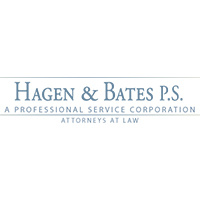Raymond Misdemeanor Lawyer, Washington
Sponsored Law Firm
-
 x
x

Click For More Info:
-
Russell & Hill, PLLC
1212 North Washington St. Suite 132 Spokane, WA 99201» view mapCriminal Defense Law Professional, Personal, Proven
You have questions, and we have answers. Here at Russell & Hill, PLLC, we know how to obtain the most favorable outcome for your particular circumstances.
800-928-5340
Not enough matches for Raymond Misdemeanor lawyer.
Below are all Raymond Criminal lawyers.
M. Preston White
✓ VERIFIEDPreston White is an attorney representing clients in criminal and family law cases in Olympia, Washington, and the surrounding counties. While serving... (more)
Jason Newcombe
✓ VERIFIEDFrom our offices in Seattle and throughout the state of Washington, we help families solve difficult legal problems and move on with their lives. ... (more)
Mark Stanley Brumbaugh
✓ VERIFIEDMr. Brumbaugh is the senior shareholder of Walstead Mertsching. He joined the firm in 1992 and has been a shareholder since 1996. He primarily repre... (more)
Wayne D. Hagen
✓ VERIFIEDSince the firm was established in 1993, the skilled attorneys at Hagen & Bates P.S. have provided versatile, professional and effective solutions to a... (more)
Christopher Desmond
Donald Alan Blair
FREE CONSULTATION
CONTACT James Hill Spokane, WA
James Hill Spokane, WA Practice AreasExpertise
Practice AreasExpertise




